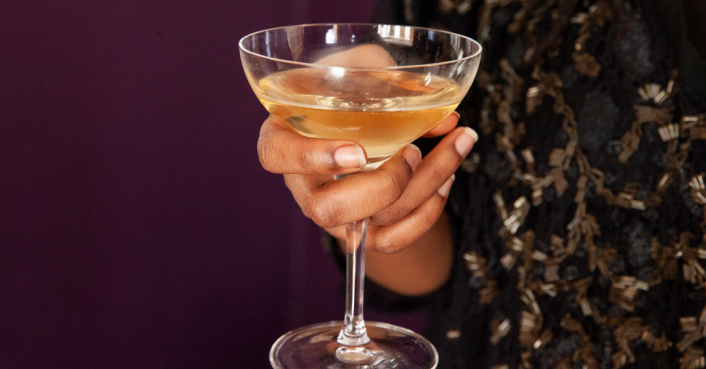Last Updated on November 7, 2023
You might think of binge drinking and imagine a bunch of college kids doing keg stands. But, this stereotype has given us a seriously blurred vision of our own drinking habits.
We usually think it’s just when we’re young that we binge drink. But professional adults do it all the time — maybe with a watered-down less keg-like version, but we still do it.
Over 20% of Americans aged 12 and older (yes, from as young as 12 years old), said they binge drank last month. And women who drink average about three binges per month.
You might be thinking there’s no way you binge drink regularly — but if you’re counting your drinks, you might be surprised.
So read on to learn what binge drinking is and what supplements you can take to cut down on hangovers and its long-lasting health effects.
Track how much you're drinkingWhat Exactly Is Binge Drinking?
Binge drinking is as simple as having four or more drinks on one occasion for women (or five for men).
Not too hard to do at a dinner party or summer BBQ, is it?
And just imagine a hard day — maybe a glass of wine to unwind after work, another while prepping dinner, another while you eat, and another before bed. That’s officially considered a day of heavy or binge drinking.
Short and Long-Term Effects of Binge Drinking
We all know it’s not good for you, but what exactly is happening inside your body after last night’s party? Well if it was just one night, the next day you might feel those dreaded hangover symptoms, like:
- Anxiety
- Fatigue
- Dehydration
- Headaches
- Muscle aches
- Gastrointestinal issues (bloated, nauseous, gassy, vomiting, etc.)
In the end, alcohol causes systemic inflammation and makes your body work extra hard to restore its natural balance. Technically, our bodies view alcohol as toxic, so the kidneys and liver have to work overtime the next day, too.
What’s Inflammation?
Inflammation is your body’s natural way of responding to an injury, infection, or irritation (and alcohol triggers this response). And alcohol makes your immune system go into action since your body perceives it as harmful.
Plus, metabolizing alcohol also generates toxic byproducts that can damage your cells and tissues — triggering even more inflammation. It also disrupts your gut bacteria, which can lead to gut dysbiosis, more inflammation, and mental health issues.
Over the long term, regular binge drinking can lead to chronic inflammation, which can cause:
- Liver issues — fatty liver disease, cirrhosis
- Cardiovascular problems — high blood pressure, heart attack, stroke
- Gut dysbiosis — imbalanced gut bacteria
- Mental health struggles — anxiety, depression, sleep disorders
- Alcohol use disorder — addiction easily develops
Of course, any of these risks can create more stress and other chronic health issues. There are also social and family life problems to consider, like difficulties in your relationships or at work.
Say goodbye to hangoversBottoms Up, Nutrients Down: Deficiencies with Drinking
When it comes to nutrition, drinking isn’t just about adding more calories to your diet.
Alcohol interferes with the absorption, storage, and metabolism of vitamins, minerals, and antioxidants. That means you’re left running on a lot of empty calories while giving your body a harder time recovering from inflammation.
Some of the most common nutrients that become depleted with drinking include:
- B vitamins: Thiamine (B1), riboflavin (B2), and folate (B9) get hit the hardest by binge drinking. Plus, they’re essential for energy production, nerve health, and supporting our hardworking liver. Without enough, you might feel tired all the time and get a ton of brain fog.
- Magnesium, selenium, and zinc: These minerals help your immune system, muscle and thyroid function, and DNA synthesis. Magnesium alone is involved in over 300 biochemical reactions, including blood pressure and energy production. Zinc helps with wound healing and immune function, and selenium is important for reproduction and thyroid function. Deficiencies in these minerals can make you more susceptible to infections, have a slower recovery, and maybe even hair loss.
- Antioxidants: Since alcohol is so inflammatory, antioxidants get quickly used up to help our cells recover. That means the risk of developing chronic diseases increases. In particular, deficiencies in vitamins A, D, E, and K are common in heavy drinkers.
The Power of Supplements for Binge Drinking
Since your body has to work extra hard to reduce alcohol’s inflammatory effects, you can help it out by regularly adding supplements to your day.
Just keep in mind that while supplements can help, they’re not an excuse to drink without worry. In the end, less will always be best — no matter how many supplements you pop.
With that said, here are some supplements to take while you work on your mindful drinking habits:
- Vitamin B Complex: To fight alcohol’s B-vitamin depletion, take a supplement with a meal before drinking.
- Milk Thistle (Silymarin): This herb might help protect your liver, acting as an antioxidant that reduces inflammation. It might also help liver cell regeneration and enhance its ability to detoxify.
- Antioxidants (Vitamin C, Vitamin E): Try taking these vitamins with some food before drinking to add some support for the work your body will have to do.
- N-Acetylcysteine (NAC): This supplement might work as an antioxidant and detoxification, possibly protecting the liver. It might even help reduce relapse-like drinking and improve impulse control associated with alcohol use disorder.
In general, it’s best to take supplements with food to lower the chances of having digestive discomfort and to increase their absorption. For example, it’s not uncommon to feel nauseous after taking a multivitamin.
Try taking them before drinking, but during or afterward (with food) might also help.
As always, talk to your doctor before taking any supplements, and make sure you hydrate (one glass of water between every alcoholic drink!).
Cutback on your drinkingThe (not so) Fine Print of Binge Drinking Supplements
- It’s still not as healthy as drinking less (or not at all). No matter how healthy you live or how many supplements you take, drinking less will always be the best thing for your body.
- Taking them once won’t be as good as regular supplementation. Supplements are designed to work over time, so try taking them at least four times per week (don’t worry if you miss a day, you’ll probably just pee the extra water-soluble vitamins out, anyway).
- There’s a potential risk of alcohol use abuse. Feeling like you have something to justify your drinking can make you feel like it’s less risky. You might end up drinking more, or more often, or feel less of a push to start drinking less.
One Sip at a Time With Sunnyside
In the end, binge or heavy drinking can easily become a habit. And with its effects on your mental and physical health, you want to know you’re taking small steps toward improving your health. Starting with supplements and tracking your patterns can be a manageable way to begin. It might even boost your sense of confidence and control over your habits, along with your health.
But, change also takes some self-compassion and support — and that’s where the Sunnyside app comes into play. You get full access to health coaches, a community of thousands, and daily personalized tips.
Plus, you can set your own goals, judgment and pressure-free.
If you’re not sure you’re ready, try the 3-minute quiz and start by just tracking your habits. Observing can not only raise awareness but also give you the motivation you didn’t know you needed to be open to change.
Any step in the right direction, even taking a supplement, can create a domino effect on other areas of your life that might surprise you.
Take the 3-min quiz



